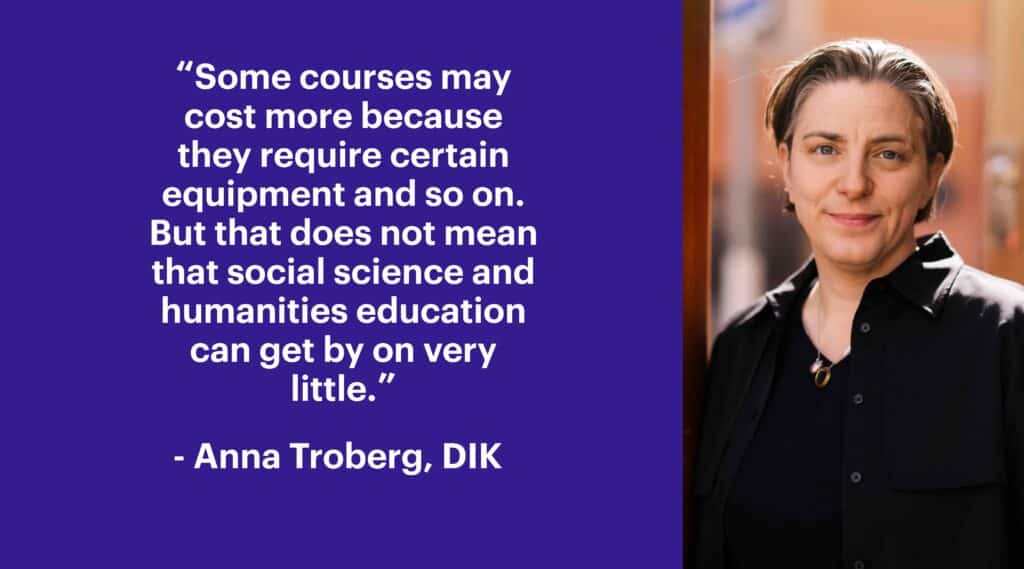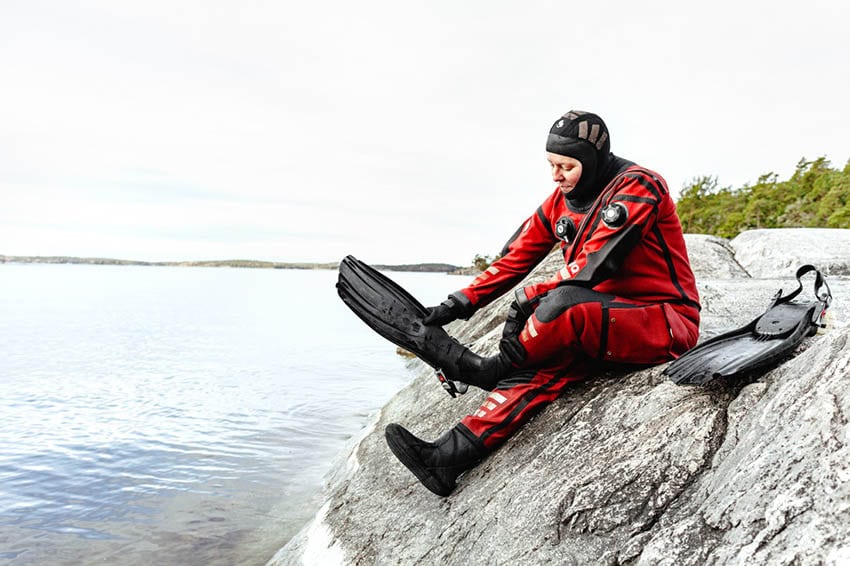An analysis of the state’s research grants in 2021 shows that humanities, arts and social sciences subjects received approximately SEK 9.6 billion. The corresponding figure for medicine, technology and natural sciences was SEK 35.5 billion, according to a report published by the trade union DIK.
The union, which organises graduate professionals within culture, communication and advertising, also found that the Swedish Research Council allocated SEK 462 million to research in the arts and humanities and SEK 918 million to social sciences in the following year, 2022. The corresponding figure for technology was 443 million, while the medicine and natural sciences each received more than SEK 2.1 billion.
Impacts the work environment
With those numbers in mind, DIK calls for ”long-term investments in humanities and social science research”. Inadequate funding leads to stressed researchers with insecure employment conditions, which ”impacts the work environment and makes it difficult to retain competence”, they write.
“Unfortunately, this is not a new problem,” says Anna Troberg, the President of DIK, “but we don’t see the situation improving. We live in a time where DIK believes that the knowledge that comes from humanities and social science subjects is perhaps needed more than ever. So we can’t go on tightening the belt.”
Subjects valued differently
She emphasises that more knowledge is needed about what it is like to be a human being, and we need more researchers to look at societal challenges in different way. She mentions pandemics, the development of AI, the wars in Ukraine and the Middle East as examples, as well as inflation and economic crises.
“Humanities and social sciences are not valued as highly as other subjects, such as technology and medicine. And that may be because people don’t understand how these subjects can contribute to society.”
It is difficult to say what the allocation of state research funds between various subjects should look like, says Troberg.
“But now there is such a huge difference. Of course, we fully understand that some courses may cost more because they require certain equipment and so on. But that does not mean that social science and humanities education can get by on very little.”
Have more students
On the education side, the report states that almost 6 out of 10 students are found in humanities, arts or social sciences. Nevertheless, only 20 per cent of research funding goes to those subjects. The corresponding figure for medicine, science and technology is 74 per cent, the report shows.
DIK also highlights the downward curve when it comes to the links between humanities and social sciences education and research. That is because lecturers devote too much of their time to teaching, and thus too little time to research. The number of humanities doctoral candidates has fallen by 26 per cent in the past decade.
“When the relationship with research grows weaker, that impacts teaching,” says Troberg. “If students don’t know about out what is happening in the latest research, that can lead to gaps in their learning. And the solution to that problem is more resources.”
DIK’s report is a compilation of previous reports in the same area, including reports published by SULF and the think tank Humsam. It is also based on statistics from the Swedish Higher Education Authority (UKÄ) and the Swedish Research Council.
Footnote: The author of the report is Git Claesson Pipping, former Executive Director of SULF.
















